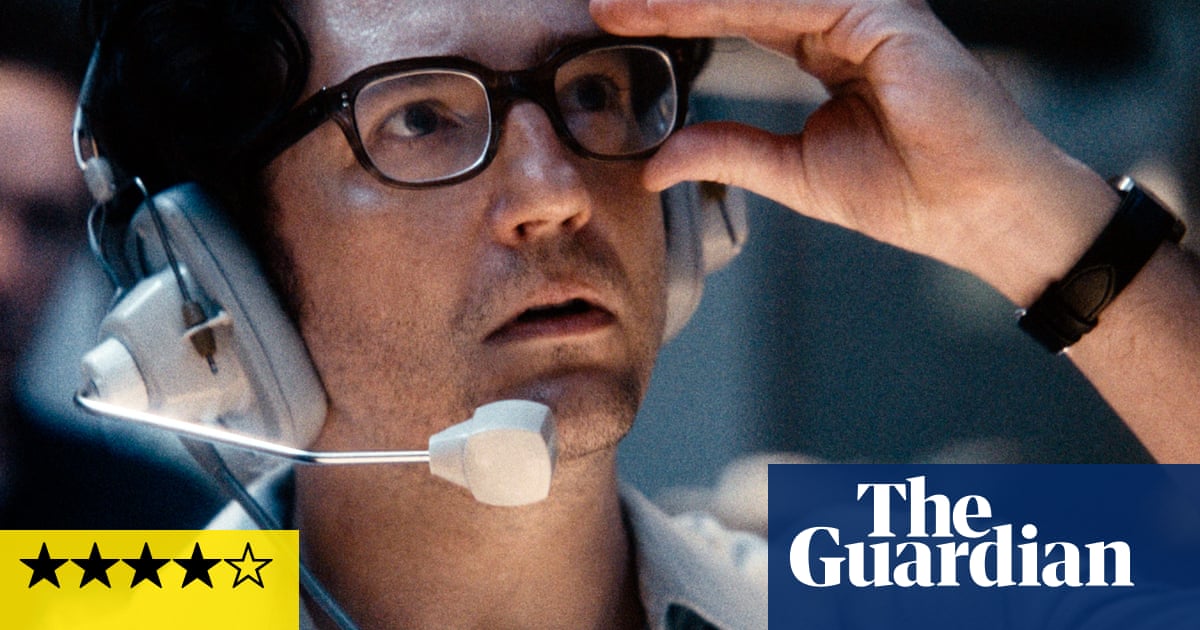The story of the 1972 Munich Olympics terrorist massacre – in which 11 Israeli hostages were killed by the Palestinian Black September group, dying along with five of members of the group and one West German police officer – is retold by the Swiss director and co-writer Tim Fehlbaum as a taut, tense thriller. The film leaves it up to us to make what we will of modern parallels.
The situation is reinvented as a kind of media procedural, shown purely from the viewpoint of ABC TV’s sports division, who from their cramped, claustrophobic gallery found themselves in sole charge of broadcasting the events live to the world. The crew is seen wheeling a cumbersome studio camera in range of the athletes’ village to capture images, quarrelling with other American TV companies about satellite-feed space. They’re under pressure to make unchecked statements to make sure their rivals didn’t get the scoop, making split-second editorial decisions with zero news experience while grimacing at the banks of TV screens like Houston Mission Control watching Apollo 13. And they were only aware too late that they were directly influencing what was happening, on the edge of panic at the responsibility and the sheer postmodern nightmare of what was happening.
Actors play the shirtsleeved execs talking over each other and barking instructions into mics, effectively in dialogue with the actual presenters in archive TV clips. The fictionalised action is interspersed with this real footage and real broadcasters (our own British journalist Trevor McDonald is glimpsed).
It’s a really smart, involving, unassumingly written picture with something of James L Brooks’ Broadcast News and I couldn’t help think that maybe this is the film that Steven Spielberg could have made rather than Munich, his rather ponderous, Forsythian thriller about the aftermath, although the best film on the subject is surely still Kevin Macdonald’s Oscar-winning 1999 documentary One Day In September.
John Magaro plays the harassed young studio director Geoffrey Mason, running on nervous energy and unacknowledged euphoria as he improvises and effectively invents new live-transmission techniques as the chaos unfolds around him. Peter Sarsgaard is the executive Roone Arledge and Ben Chaplin the overseeing producer Marvin Bader. The French-Algerian actor Zinedine Soualem plays the engineer Jacques Lesgards; the film amplifying his Arabic ancestry to balance the Jewish newsroom presence. The German actor Leonie Benesch plays a fictionalised character, Marianne Gebhardt, the idealistic young assistant, mortified at the older generation’s sins, pressed into service to translate what was going on.
The film gives us ABC’s two nightmares: the team were at first triumphant as they got cameras and commentators into position to watch the initial attempts by local untrained German police, wielding military-grade rifles, to clamber over the rooftops and with the advantage of surprise storming the apartments where the hostages were held. They showed it live but their self-congratulation was short lived as they realised that the terrorists could watch it on their TVs too. Given that the German police were almost bizarrely incompetent and ill-trained (having turned down Israel’s request to send in their own special-forces team) it probably wouldn’t have worked. But who knows? Did ABC television change the course of history in the worst possible way?
And then once the hostages had been taken out of the Olympic village to a military airfield, the ABC team start listening to (heartbreakingly wrong) rumours that all the hostages were free, and taking their cue from a rash statement on West German state radio, encourage their presenters to recycle this false good news. Any nervousness they have is apparently cancelled by subsequent confirmation reports – but aren’t these confirmations simply taking their cue from the authoritative voice of America?
This is a film which succeeds because it does not burden itself with history or politics, or with their self-reflexive issues; it simply transcribes the professional callousness and voyeurism of live TV journalism concerned just to get the pictures and to wrap them up with a neat ending. The film moves more freely because of its willed unconcern with the historical implications of the Munich hostage massacre; modern audiences may feel the contemporary context makes it naive or obtuse. But it’s a muscular, well-made picture with the tang of cold sweat.

